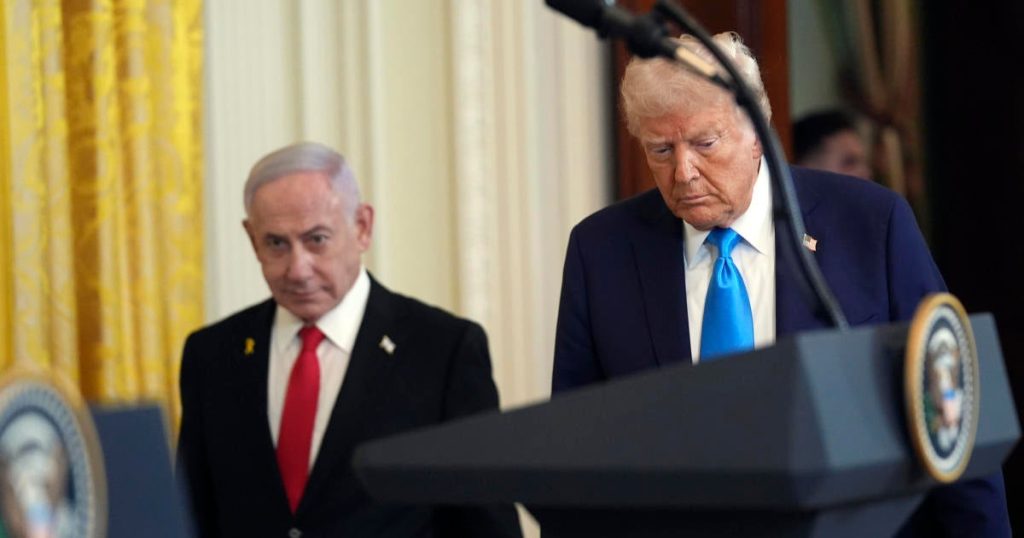President Trump’s Controversial Remarks on Gaza and Palestinian Resettlement
In a recent interview with Fox News’ Bret Baier, former President Donald Trump made controversial remarks regarding the future of Gaza and the rights of Palestinians living in the region. Trump stated that Palestinians would not have the right to return to Gaza, emphasizing, "I would own this," as part of his vision for the U.S. to "take over" and redevelop the Gaza Strip. This statement expands on his earlier comments last week, where he suggested that the U.S. would assume control of Gaza, dismantle dangerous infrastructures, and build new, safe communities for its residents. Trump’s remarks come at a sensitive time, as Israel and Hamas continue to observe a fragile ceasefire and negotiate a hostage deal following Hamas’s terrorist attack on Israel on October 7, 2023.
Trump’s Vision for Gaza: Real Estate Development and Relocation
During the interview, Trump outlined his vision for Gaza, likening it to a real estate development project. "We’ll build beautiful communities for the 1.9 million people," he said, emphasizing the creation of safe and modern housing for Palestinians. He suggested that these communities would be constructed "a little bit away" from the current danger zones, implying a permanent relocation of the Palestinian population. When asked directly by Baier if Palestinians would have the right to return to their ancestral homeland, Trump replied unequivocally, "No, they wouldn’t, because they’re going to have much better housing, much better." He argued that Gaza, in its current state, is uninhabitable and would take years to become livable again. Instead, he proposed building permanent settlements for Palestinians elsewhere, effectively denying them the right to return to Gaza.
Reactions to Trump’s Proposal: Hope and Hostility
Trump’s remarks have sparked mixed reactions from various stakeholders. On one hand, Israel has welcomed the proposal, seeing it as an opportunity to reduce tensions and create a more stable environment in the region. On the other hand, Palestinian leaders and communities have expressed outrage and disappointment, as the right to return to their homeland is a cornerstone of Palestinian identity and their struggle for statehood. Many Palestinians view Trump’s plan as an attempt to erase their history and legitimacy in the region. Additionally, some families of hostages held by Hamas have raised concerns that Trump’s rhetoric could complicate ongoing negotiations for the release of their loved ones.
The Feasibility of Trump’s Plan: Challenges and Concerns
While Trump’s vision for Gaza may sound ambitious, it raises several practical and political challenges. For instance, Trump suggested that Jordan and Egypt could financially support the resettlement and housing of Palestinians, but both countries have already rejected the idea. This leaves a significant question mark over who would fund such a massive infrastructure project. Furthermore, the logistics of relocating 2.1 million Palestinians while their new homes are being built remain unclear. The plan also faces opposition from human rights organizations and international leaders, who argue that it violates international law and disregards the rights of the Palestinian people. Critics also point out that Trump’s proposal ignores the deeper political and historical issues driving the Israeli-Palestinian conflict, such as the quest for self-determination and statehood.
A Blow to the Two-State Solution?
Trump’s statements have significant implications for the future of the Israeli-Palestinian peace process. By denying Palestinians the right to return to Gaza and promoting the idea of permanent resettlement elsewhere, Trump’s plan effectively undermines the two-state solution, which has long been the foundation of international efforts to resolve the conflict. The two-state solution envisions an independent Palestinian state alongside Israel, with Gaza and the West Bank as key territories for the Palestinian state. Trump’s remarks, however, signal a departure from this framework, aligning more closely with Israel’s expansionist policies. This shift has alarm bells ringing among Palestinians and their allies, who fear that Trump’s approach will perpetuate occupation and dispossession.
The Broader Implications of Trump’s Remarks
The broader implications of Trump’s remarks extend beyond the immediate issue of Gaza’s future. His comments reflect a broader trend of dismissiveness toward Palestinian rights and aspirations, which has become increasingly prevalent in international discourse. By framing the issue of Gaza as a real estate problem rather than a political and humanitarian crisis, Trump oversimplifies the complexities of the conflict. His emphasis on economic development and infrastructure over political rights and sovereignty raises concerns about the long-term prospects for peace in the region. Moreover, his rhetoric has the potential to embolden hardline factions on both sides, further polarizing an already volatile situation. As the international community grapples with how to respond to Trump’s proposal, one thing is clear: the path forward will require a nuanced understanding of the conflict’s history, a commitment to justice and equality, and a willingness to engage in meaningful diplomacy.












